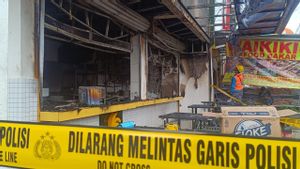JAKARTA - Every time before the holiday celebrations, the gathering is not only done by meeting and greeting, but also sending gifts to each other. Since long time ago, sending parcels to each other has been a way of building relationships with colleagues every holiday. Now it's the same, especially when the pandemic hits. Physical presence is represented by gifts. But it seems that the existence of the parcel has been replaced by almost.
If seen, these two parcels look similar, but are actually different. The contents of the parcels may be the same, including food, drinks, or cleaning tools due to current conditions. The difference between the two lies in the way they are presented.
The way of serving parcels is more likely to be stacked so that they can be wrapped into gifts or gifts, while almost tend to arrange in a basket or box.
Although it is almost getting busy in Indonesia recently, the concept was introduced by France to England in the 11th century for the first time. At that time, it was almost designed to provide donations to families in need so that it contained daily necessities.
Then there was the industrial revolution in the Victorian era. Hampers began to develop into lavish gifts sent for Christmas celebrations. Not only for relatives, but workers and servants also usually provided by their employers.
Around the 19th century, motorized travel increased. Some are almost starting to be filled with cooking utensils such as tea kettles and warmers in order to allow recipients to use them almost on the go. This makes the contents almost more diverse and not only given out just before Christmas.
Until finally in the 21st century, almost no longer only contains basic ingredients, but also snacks such as biscuits, juices and wine. In our country there are almost unique choices such as almost aromatherapy candles to almost chili sauce.
Please hit the listen button and let us tell the story for you.
The English, Chinese, Japanese, Arabic, and French versions are automatically generated by the AI. So there may still be inaccuracies in translating, please always see Indonesian as our main language. (system supported by DigitalSiber.id)













